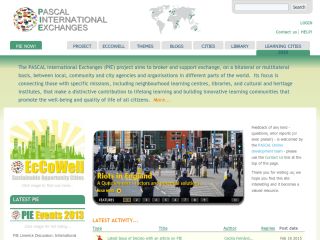Wisdom and knowledge in researching and learning lives: diversity, difference and commonalities, ESREA
Milano, Italy
European Society for Research on the Education of Adults, ESREA
Abstracts
Abstracts and proposals are called for to be submitted by 17th December 2008: on one side of A4 only, with names, affiliations and contact details on a separate sheet. Please mail to : [email protected]
Please note that ESREA will be offering 2 bursaries (250 EUR each) for doctorate students.
Conference Information
Biography, memory, narrative and knowledge are very crucial issues in the field of education, in the study and experiences of lifewide and lifelong learning, and in adult life as a whole. They are studied as objects, processes or focuses, that enable us to understand the way people learn, the choices they make (including how these may be structured), the role and nature of story, and how they make sense of and compose meaning in their lives (as well as our own). They are the main focus of our research. Auto/biographic and life history approaches are the common ground for the ESREA network on Life History and Biographical Research.
| Attachment | Size |
|---|---|
| ESREA - March 2009.doc | 41 KB |
 Printer-friendly version
Printer-friendly version- Login to post comments
- 268 reads
- Calendar






